Boat Battery Replacement

- Sponsor
- OPTIMA Batteries
- Location
- Harris Chain, FL


Is it time to replace your boat battery? We'll give you some tips to keep in mind when making that decision, whether your choose an OPTIMA battery, some other brand or even some other technology, like a lithium battery. First thing is first:
Choose a Reputable Brand
We don't know why marine batteries attract all kinds of battery brand names you've never heard of before, but there's a good chance you'll have a hard time finding an unknown brand, if you ever need warranty service. For that reason, we always recommend choosing a reputable brand and retailer. This is especially true if you've decided you want to plunk down thousands of dollars on lithium batteries. Established brick & mortar retailers will do a far better job of providing warranty service to you, than the lowest-priced option on eBay or some random guy on Craigslist, who wants to meet you in a parking lot to sell batteries out of his van.
That's easy enough to do if you're going somewhere like a local marina or Bass Pro Shops to buy a boat battery, but what if you're shopping online? Find a battery brand's physical address and look them up on Google's Street View (you can see OPTIMA's World Headquarters at Clarios on Street View here and our production facility here). If another battery brand's address is not a commercial location or doesn't have a sign identifying their business, keep shopping.
There are people literally selling batteries online out of their house or a rented mailbox. If a barber or nail salon can afford to put a sign on a building, so can someone who wants to charge you hundreds or even thousands of dollars for boat batteries. If they haven't been in business long enough to put a sign on a commercial location or they just don't have the money to do it, keep shopping or at least purchase their batteries through a reputable local retailer. That way, if the brand disappears, your local retailer will still honor your warranty with a replacement brand.
Choose the Appropriate Battery Technology
Only you know how much you have invested in your boat and what your intended use is, so you'll be the best person to decide which battery technology will work best in your application. Flooded lead-acid batteries are the least-expensive option, but also come with the shortest expected lifespan. However, if you just need a starting battery for a $1,000 runabout you bought from your neighbor, that might be the most sensible option.
AGM lead-acid batteries, like OPTIMA Batteries, are more expensive than flooded lead-acid batteries, but they can last up to three times as long. Their sealed design also minimizes the chance of acid escaping and damaging your boat. Like other lead-acid batteries, they can be used in both engine starting and deep-cycling (trolling motors/house batteries, etc...) applications. They can also be charged with most onboard battery chargers that offer settings for lead-acid, deep-cycle or AGM batteries (they are not gel batteries, so do not use any settings with "gel" in it).
Lithium-based products, like OPTIMA ORANGETOP batteries offer promises of significantly more cycle life and significantly lighter weight than other battery options, but that comes with the highest pricetag by far. With thousands of dollars on the line, verifying a physical address for a lithium battery brand is just the start of the research you should do. When you find a reputable brand, find some unsponsored boaters in Facebook groups or message boards, who have shared their experiences with that brand.
If you're not sure if they are sponsored, don't be afraid to ask if they've been given free or discounted batteries. Almost all of the tournament anglers we've spoken to who are using lithium batteries in the OPTIMA Canal on Florida's Harris Chain either received their batteries for free or at a significant discount, which can impact their perspective and what information they are willing to share with you. You should also understand what cycle life really means, especially in fishing applications.
OPTIMA's sponsored pro anglers typically spend about 125-150 days per year on the water. Our sponsored charter anglers may spend up to 250 days on the water. If a battery brand is suggesting their products will deliver thousands of cycles, it may be difficult to find someone who has owned them long enough to find out if those claims are true. A charter fisherman who is on the water 250 days per year may not see 2000 cycles for eight years, so be sure to ask them how long they've owned the batteries and how many days per year they fish. Most lithium battery brands don't have the resources to test battery cycle life in a lab and only repeat longevity claims, based on what a third-party manufacturer tells them about the cells in their batteries, not the batteries themselves.
Most lithium batteries are also only designed for deep-cycle use, although for several hundred dollars more, you can probably find one that is designed for both starting and deep-cycle use. Lithium batteries may also need special chargers and while some may have an integrated battery management system, the technology and quality behind those are not all the same. If you go the lithium route, be sure to get confirmation in writing on how to use and maintain them. That way, you will not be using and maintaining your batteries in a way that would void your warranty (you can find the OPTIMA warranty here).
Choose the Right Size
Once you've found a reputable brand and selected the technology you will use, you'll need to select the appropriate battery size (or sizes, if your boat has more than one battery). While many battery purchasing decisions focus on cold cranking amps, that is more of an automotive-specific standard that will probably never come into play in a marine application, unless you plan on starting your boat engine on a frozen lake. Instead, we would recommend finding the cranking amp (CA) or marine cranking amp (MCA) specification for your boat's engine and make sure you meet or exceed those requirements.
If your boat only has a single battery and you plan to use it at times as a house battery or with the engine off (running fishing equipment or a stereo), you'll want a battery that is designed for deep cycle use and one with more reserve capacity (often measured in amp hours or Ah). Peurkert's Law for lead-acid batteries indicates the more deeply you cycle or discharge a lead-acid battery, the fewer cycles you will get from it. For that reason, if you have room for a larger house or auxiliary battery, you may want to get the largest battery your boat can accommodate. Your boat may also have a specific area or box for a battery, so you may be limited by those dimensions.
Whatever battery you end up with, you'll maximize the performance and lifespan by maintaining proper voltage in it whenever possible. We're so confident this is true, if you purchase an OPTIMA battery from us and an OPTIMA Digital 1200 battery charger at the same time, we'll extend the free replacement warranty coverage on your battery by a full year! If you purchase a lithium product, make sure to contact the brand and get written confirmation of the chargers they consider acceptable for their products. Some other AGM battery brands may also void your warranty for not using a charger from their "approved" list, so make sure you read the warranty terms & conditions before making a purchase.
